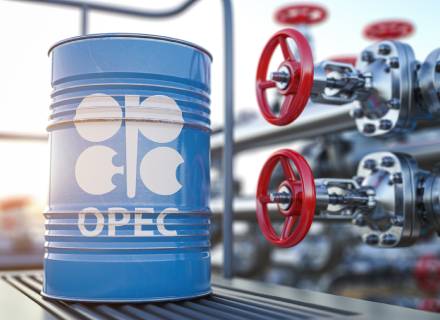OPEC stated that it will now concentrate on the anticipated demand for OPEC+ crude, acknowledging that the larger group is now the primary venue for market cooperation. OPEC maintained its prediction of robust growth in the world’s oil demand in 2024.
In a monthly report, the Organisation of the Petroleum Exporting Countries projected that global oil demand would increase by 1.85 million barrels per day (bpd) in 2025 and by 2.25 million bpd in 2024. The two predictions from last month remained the same.
This is the final report prior to the June 1 meeting of OPEC+, an alliance comprising Russia and the other members of OPEC, to decide whether to continue the voluntary oil output cuts into the second half of the year. When it came to the economic outlook, OPEC was optimistic.
“Despite certain downside risks, the continued momentum observed since the start of the year could create additional upside potential for global economic growth in 2024 and beyond,” OPEC said in the report.
In an effort to support the market, OPEC+ has reduced output several times since late 2022. Unless it is extended, as some OPEC+ sources have indicated, the most recent cut of 2.2 million bpd is in effect until the end of June 2024.
Owing in part to disagreements over how quickly the world will switch to cleaner fuels, forecasters’ estimates of the rate of growth in oil demand in 2024 diverge more than usual. The oil demand is expected to peak by 2030, according to the International Energy Agency, a representative body of industrialised nations.
The agency projects a 1.2 million barrel per day increase in oil demand and is expected to release updated data soon. With no peak in sight, OPEC anticipates that oil consumption will continue to rise over the next 20 years.
Additionally, OPEC declared that it would no longer publish the estimate of global demand for its own crude, which is used as a gauge of market strength, and instead concentrate on OPEC+’s oil demand.
IEA Disagrees
Meanwhile, the International Energy Agency (IEA) has trimmed its forecast for 2024 oil demand growth, widening the gap with producer group OPEC in terms of expectations for 2024’s global demand outlook.
“The divide between the IEA, which represents industrialised countries, and the Organisation of the Petroleum Exporting Countries sends divergent signals about oil market strength in 2024 and, over the longer term, about the speed of the world’s transition to cleaner fuels,” reported CNBC TV18.
While stating that the global oil demand in 2024 will grow by 1.1 million barrels per day (bpd), the Paris-based IEA largely cited weak demand in developed OECD nations behind the phenomenon.
Other factors are poor industrial activity and a mild winter sapping gas oil consumption (particularly in Europe). In Europe, there has been a declining share of diesel cars, which has been undercutting consumption.
“Combined with weak diesel deliveries in the United States at the start of the year, this was enough to tip OECD oil demand in the first quarter back into contraction,” IEA said, while noting though that the OECD slump was somewhat offset by resilient non-OECD demand led by China.
The gap between the forecasts of IEA and OPEC has now got wider than it was earlier in 2024, when a Reuters analysis found that the 1.03 million-bpd difference in February 2024 was the biggest since at least 2008.
The two, however, are closer in their projections for 2025, as the IEA slightly raised its demand growth estimate to 1.2 million bpd, with OPEC leaving its 1.85 million-bpd forecast unchanged.

